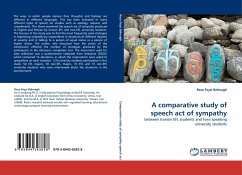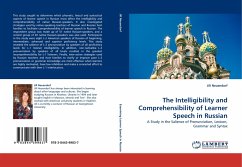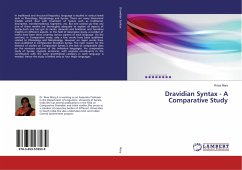The ways in which people express their thoughts and feelings are different in different languages. This has been indicated in many different types of speech act studies such as apology, request, and compliments. This thesis examined the speech act of sympathy produced in English and Persian by Iranian EFL and non-EFL university students. The focuses of the study was to find the most frequently used strategies in expressing sympathy by respondents in situations of different degrees of severity and in talking to a person of equal status vs a person of higher status. The author also discussed how the status of the interlocutor affected the number of strategies produced by the participants in the discourse completion test. The instrument used for data collection was a questionnaire (adopted from Nakajima (2002)) which contained 14 situations, in which the respondents were asked to sympathize on each situation. 120 university students participated in this study: 50 EFL majors, 50 non-EFL majors, 10 EFL and 10 non-EFL university students who were interviewed about the situations in the questionnaire.
Bitte wählen Sie Ihr Anliegen aus.
Rechnungen
Retourenschein anfordern
Bestellstatus
Storno








